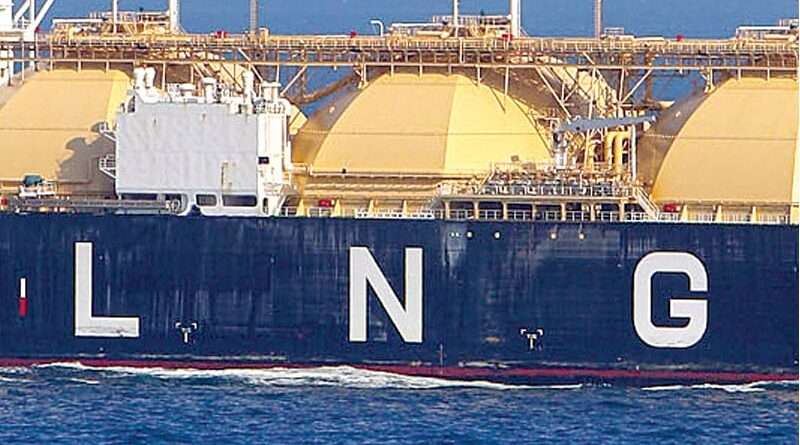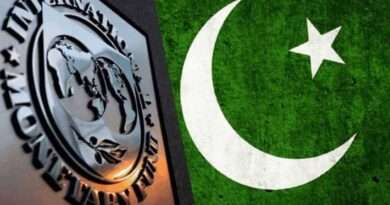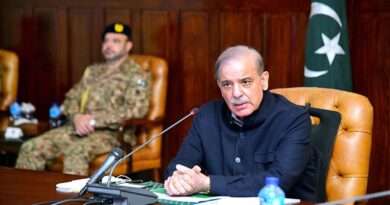Concerns Raised Over LNG Price Reduction Proposal by High-Level Committee
|
Getting your Trinity Audio player ready...
|
ISLAMABAD: The Prime Minister’s Committee Questions LNG Price Reduction Proposal
A top-level committee headed by Deputy Prime Minister Ishaq Dar has raised significant concerns about a recent study recommending a reduction in liquefied natural gas (LNG) import charges. As a result, the committee has instructed the relevant regulator to reconsider the proposal.
Sources revealed to The Express Tribune that the gas sector committee, which was established by Prime Minister Shehbaz Sharif, had previously been briefed on the possibility of reducing LNG charges by up to $1.5 per million British thermal units (mmBtu) by reassessing various cost components.
The Port Qasim Authority had commissioned a third-party study to evaluate LNG pricing, which was presented to the committee in a recent meeting. According to the study, the price reduction could only be as low as two cents per mmBtu, leading to concerns among committee members. They dismissed the study as flawed and asked the Oil and Gas Regulatory Authority (OGRA) to conduct a thorough review.
Currently, LNG purchasers are burdened with terminal charges, retention fees, and the cost of high unaccounted-for-gas (UFG) losses. Sources pointed out that there are varying UFG rates for transmission and distribution pipelines. However, LNG is primarily distributed through the latter, which results in higher UFG charges for consumers. LNG buyers have requested the elimination of retention charges and the application of a uniform UFG rate for both transmission and distribution pipelines, which could lead to lower prices.
Offshore and Onshore Exploration Auctions
During the meeting, officials from the Oil and Gas Development Company (OGDC), including Managing Director Ahmed Hayat Lak, and Mari Petroleum’s Managing Director, commended the committee for addressing the issue of selling gas to third parties, which would significantly improve the financial health of these companies.
In the past, gas exploration companies faced financial challenges due to accumulating circular debt. However, the recent decision to allow the sale of 35% of newly discovered gas to third parties is expected to alleviate this burden and enable these companies to resume their operations more effectively, boosting their efforts to increase the country’s oil and gas production.
The committee also discussed plans to invite bids for new onshore exploration blocks by April 30. Additionally, the government is working on issuing tenders for offshore exploration blocks, with the goal of floating these tenders by June 30.
While US energy giant ExxonMobil’s offshore drilling efforts near Karachi did not yield the desired results, the government is hopeful that Russian firms will show interest in bidding for these offshore blocks.
Commitment to Energy Sector Reforms
Deputy PM Ishaq Dar, in his remarks during the meeting, reaffirmed the government’s commitment to fostering a secure and investment-friendly environment for exploration and production (E&P) activities. He emphasized the importance of crafting a long-term strategy to address circular debt and introduce sustainable LNG pricing systems, ensuring the financial stability of Pakistan’s energy sector.
Federal Minister for Petroleum Ali Pervaiz Malik provided insights into the government’s steps to resolve challenges within the energy sector, underscoring a focus on energy indigenization and integrated energy planning.
The deputy PM praised the decision to initiate bidding rounds for offshore and onshore exploration blocks, considering it a major step toward unlocking Pakistan’s hydrocarbon potential. He also supported the move to allow E&P companies to sell 35% of their gas to third parties, viewing it as a reform that would encourage competition, improve payment structures, and attract more investments in the sector.
The committee also addressed the security concerns faced by E&P companies. It recognized the essential role of the Pakistan Army, the Ministry of Interior, and law enforcement agencies (LEAs) in ensuring a secure operational environment. Notably, the successful connection of the Shewa discovery in Waziristan to the Sui Northern Gas Pipelines Limited (SNGPL) network was highlighted as a result of their assistance.
Further discussions covered long-term energy strategies aimed at reducing Pakistan’s dependence on imported energy by optimizing domestic resources. The committee also reviewed the challenges related to LNG procurement and the supply chain, focusing on ensuring uninterrupted gas availability for industries and consumers.
Deputy PM Ishaq Dar reiterated the government’s dedication to implementing necessary reforms, expediting regulatory approvals, and enhancing private sector participation in the energy sector. He directed relevant authorities to act swiftly in addressing identified challenges to strengthen the country’s energy security.
“The government remains steadfast in its commitment to nurturing a strong E&P sector, promoting sustainable energy development, and driving Pakistan’s economic growth,” the meeting concluded.
FAQs
- What did the study on LNG price reduction propose? The study suggested that LNG prices could only be reduced by two cents per mmBtu, which was seen as insufficient by the committee.
- Why are LNG prices high in Pakistan? LNG prices are high due to factors such as terminal charges, retention fees, and the cost of high unaccounted-for-gas (UFG) losses in distribution pipelines.
- What is the government’s plan to address circular debt in the energy sector? The government plans to allow companies to sell a portion of their gas to third parties, which is expected to improve cash flow and reduce circular debt in the sector.
- How will offshore exploration auctions benefit Pakistan? The auctions will attract foreign and local investments, help explore new energy resources, and contribute to Pakistan’s energy self-sufficiency.
- What reforms are being implemented in Pakistan’s energy sector? Key reforms include LNG pricing adjustments, offering exploration blocks for auction, and improving the regulatory environment to promote private sector investment and competition.




